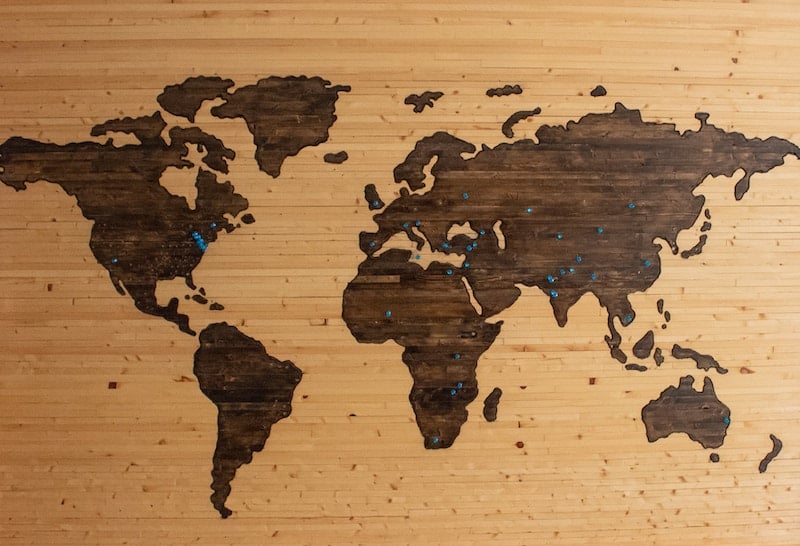Recently I have become more vocal on Twitter and on my personal blog about my social activism. For the record, I have been an activist for LGBTQIA+ rights since 2001, so if this comes as a surprise to anyone, you haven’t been paying attention. This activism gives me a unique opportunity in my roles as a community leader, international speaker, and author, to help people understand why diversity is important.
It’s not just part of the diversity and inclusion catchphrase. It’s not an item on an auditor’s checklist. Diversity is probably one of the hardest things you will do in your life because it specifically requires you to leave your comfort zone, learn from someone else’s point of view, absorb that experience, and then change your entire way of life because of your changed perspective. Then you get to do it all over again tomorrow.
It’s hard work. It’s hard because (as the central premise of this series of posts maintains), gatekeeping is designed to avoid diversity — in some cases at any cost.
For the sake of clarity, I’m talking about looking at your corporate structure and employees, and seeing if they accurately reflect the country’s distribution of gender, race, and backgrounds. Are 50% of your staff complement women? If you’re in a country that has a majority of a certain race, is that also reflected? For instance, South Africa’s Caucasian population is less than 10%, but far more than 10% of the economy is run by white people. This inequality is not only economically unbalanced, it also means that many white-owned companies do not have an idea of what the majority of people are thinking. If you’ll excuse this politically charged comparison, it’s no different than a committee of men deciding what to do with women’s bodies.
Diversity is about recognizing the differences between us, and listening to what people who don’t look like us have to say. It’s about not judging people by their appearance. It’s about calling them by their preferred pronouns. While you might live on a white cloud that prevents issues affecting you directly, diversity gives you the opportunity to at least listen to and hopefully empathize with lived experiences other than your own.
This is where we might hear someone suggest that they’re oblivious to skin colour. That race and culture don’t matter because people are people and the cream will rise to the top. Where this argument falls down is through bias and ignorance. By ignoring (or pretending to ignore) differences, we lose the very essence of diversity. People supporting the point of view where we’re all one human race expect that their own experience and culture is the default setting, and that’s usually caucasian and Western.
Embrace difference. It’s not racist to talk about race in the same way that it’s not sexist to talk about women’s rights, and it’s not anti-LGBTQIA+ to talk about queer issues. All of these groups are distinct, but they intersect. A black queer woman does not have the same perspective as a white straight woman, but they both experience discrimination. Intersectionality isn’t a word to scare off right-wing politicians. It literally means that there is an overlap between several kinds of discrimination. While the term is inextricably linked to “feminism,” it’s useful to remember that feminism promotes gender equality. That’s it. That’s all feminism means.
So please, listen to the people around you. Call out your family, friends and colleagues if they’re making stereotypical statements, especially if they’re about women, or people with darker skin, or queer people. Ask that person who looks and sounds different to you for their input. This isn’t about being oversensitive or a snowflake, it’s about treating everyone the way you want to be treated. If you truly believe in equality, it starts there.
Listen to people. Have strong opinions, but loosely held. If you are wrong, admit it and move on. Learn from those around you.
Leave your thoughts in the comments below. Look out for the final piece in this series, coming soon.

Due to your international recognition and your community activities I’m following you… I also followed several of your discussions on social media about diversity and I felt motivated to write my comments here…
I was a little bit confused about some situations which you described as it seems to be a “problem” in other countries… here in Germany it seems to be a little bit different as eg in America… at least in the European MSFT community there seems to be less problems for ????️???? people. I spoke to several guys/girls/…. and nobody told me about massive problems about racism, gender or whatever… girls didn’t get stalked on conferences because they are girls, “black” people doesn’t get pushed into “a corner”
The last comments I read from you was about the job advertisement with a white bearded man… it might be that I never was in a situation to think about such impressions what people might think that they might be eventually be bullied. In my opinion all people are equal so I never thought about it what others think. I’m also different! I’m more open to other people… I’m loud, I like to talk, I like to be open to new things… and I don’t really care about what others think of me! I’m individually and I’m proud of what I’m… so i don’t care if there is a job advertising which only shows a bearded man… I’m accepting others who feel different but why do they think they’re not welcome to that company? Which image is the right to fit all needs/feelings? Is it how people get raised? I often don’t understand what’s going on?
I don’t wanna get too close anyone’s feelings I just wanna try to understand why some feels so different… my experiences are so different over here!
Nice thoughts, Randolph, and thanks for all your work to promote equality and diversity. We certainly can use more.
Comments are closed.